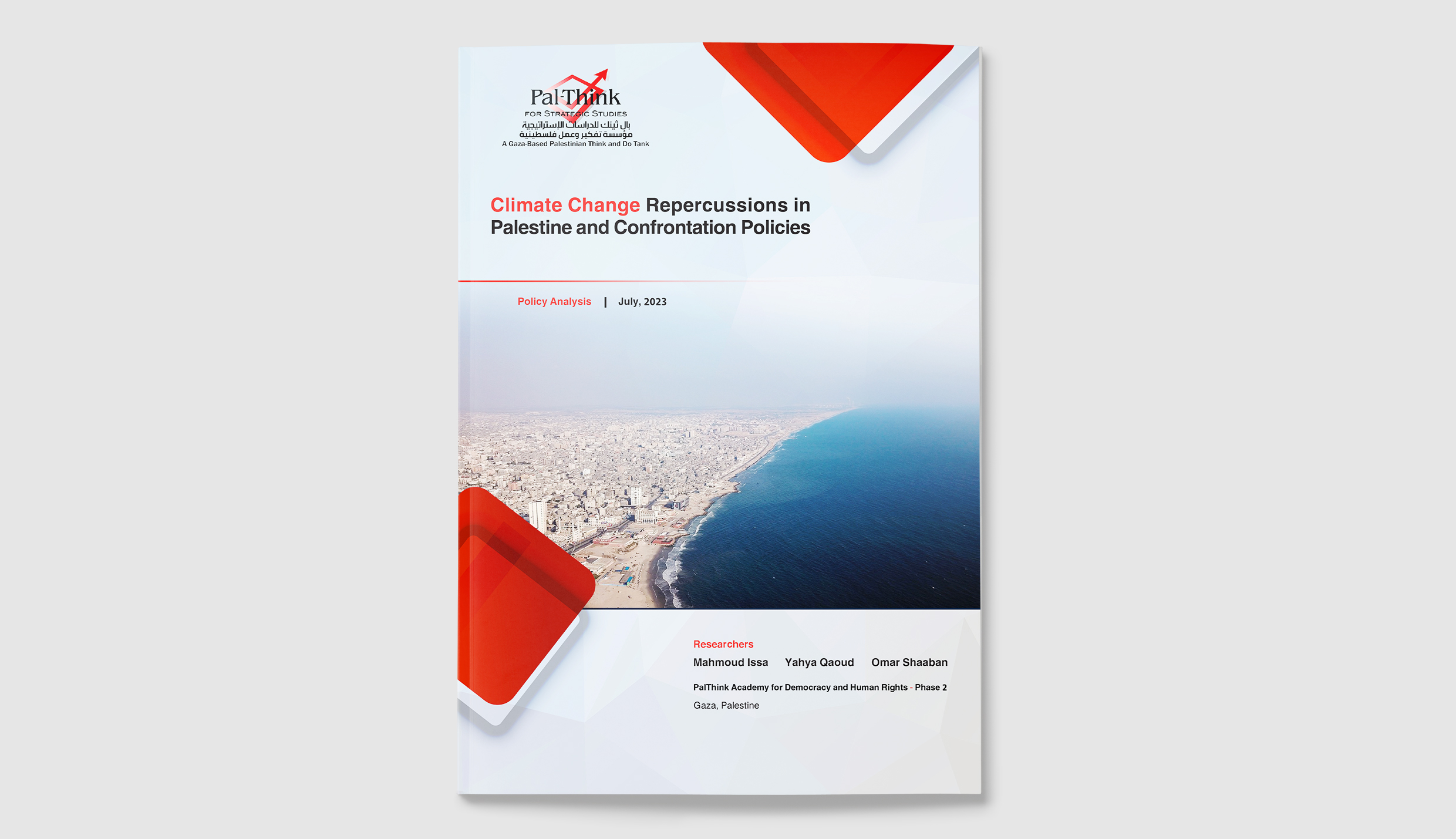Policy Analysis Paper | Climate Change Repercussions in Palestine and Confrontation Policies
- Download
- 241

PalThink for Strategic Studies has published a policy paper entitled “Climate Change Repercussions in Palestine and Confrontation Policies” prepared by Dr. Yahya Qaoud, Dr. Mahmoud Issa, and Omar Shaban, as part of the “PalThink Academy for Democracy and Human Rights – Phase II” project supported by the German Federal Foreign Office’s funds by ifa’s Funding Programme zivik.
The impact of climate change has become a tangible reality, and fragile states, such as Palestine, remain the most vulnerable to climate change because they are unable to respond and adapt to its various threats. The potential risks of climate change have significant interrelated effects on various economic sectors in Palestine, making it susceptible to numerous possible risks in water, agriculture, fishing, energy, and health sectors. The paper also highlights the challenges and obstacles that impose additional burdens on Palestine’s ability to adapt to climate change and deal with its consequences.
The paper presents a set of political alternatives and solutions in an attempt to confront climate change and tackle the potential challenges and risks within the capabilities and capacities of Palestine, in coordination between relevant governmental and non-governmental entities.
The first alternative focuses on proactive confrontation policies through increasing environmental awareness and promoting environmental values, in addition to enhancing knowledge production and research on climate change to inform decision-making. This necessitates the unification of government policies in the Gaza Strip and the West Bank.
The second alternative focuses on interactive policies and measures, recognizing the importance of proactive measures to mitigate the severity of climate change effects. However, the effects of climate change have become challenges and barriers to productive sectors in Palestine, especially the agricultural sector. Therefore, there is a need to implement a series of urgent responsive measures to adapt and mitigate these effects.
The paper proposes a set of swift responses that can reduce the impact of climate change on the Palestinian society, such as increasing energy efficiency and promoting available economic opportunities to cope with climate change and relying on green fertilizers.
As for the third alternative, it deals with confronting occupation policies and measures through monitoring Israeli violations and activating Palestinian diplomacy, making use of Palestine’s accession to the Framework Convention on Climate Change.”
Download



 Home
Home Literature
Literature Studies
Studies Reports
Reports Book
Book International Conventions
International Conventions Links
Links Academy News
Academy News Opportunities
Opportunities Networking
Networking Your opinion
Your opinion